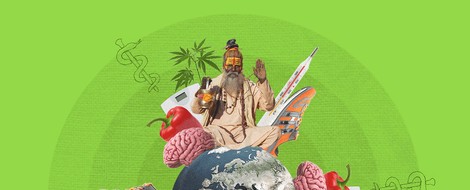Your podcast discovery platform
Curious minds select the most fascinating podcasts from around the world. Discover hand-piqd audio recommendations on your favorite topics.

piqer for: Health and Sanity Global finds
I was born in 1987 in Bucharest. I studied Psychology and Educational Sciences at the University of Bucharest. For two years I worked in a psychotherapy practice, dealing with gambling addicts. I'm an independent reporter, writing and doing video reportages mostly about social and political issues. I am currently based in Jena.
The Honest Truth About Dishonesty
In this podcast, the host talks about lying with Dan Ariely, professor of psychology and behavioral economics at Duke University, author of The Honest Truth about Dishonesty. We often lie, and not only to others, but mostly to ourselves. What the discussion focuses on is what makes people be honest, what needs to happen for us to switch to dishonesty, and whether self-deception has some virtues, along with examples from Ariely’s work and personal life, as a survivor of an accident that left him with severe burns.
One of the first questions of the show is: why don’t people cheat more? The IRS could be easily fooled, given their shortage of personnel and load of work. Ariely often goes to restaurants and asks the waiters how he could eat and get away without paying. People could cheat on their taxes more, and there are numerous ways to leave the restaurant without paying, but hardly anybody does it. It turns out that, through education, we’ve internalized the society’s moral values, including honesty.
However, people do need to be reminded to not lie. Ariely made a study with an insurance company. Customers had to fill out a form about how many miles they’d driven last year — the more they drove, the more they paid, and the other way around. Ariely made two versions of the form: on the first one people had to sign in the beginning that they’re telling the truth; on the second form, they had to sign at the bottom, after having made all the declarations. People admitted to having driven more by 50% when they had to sign up front.
Through Ariely's personal story, the conversation turns to self-deception. At 17, 70% of his body got burned and he spent the next three years in a hospital and endured multiple surgeries. The doctors didn’t always tell him how bad his situation was, he says, and, in hindsight, that helped him pull through. So the question is not so much is self-deception good or bad, but more like how much of it can we have and in what situations.
